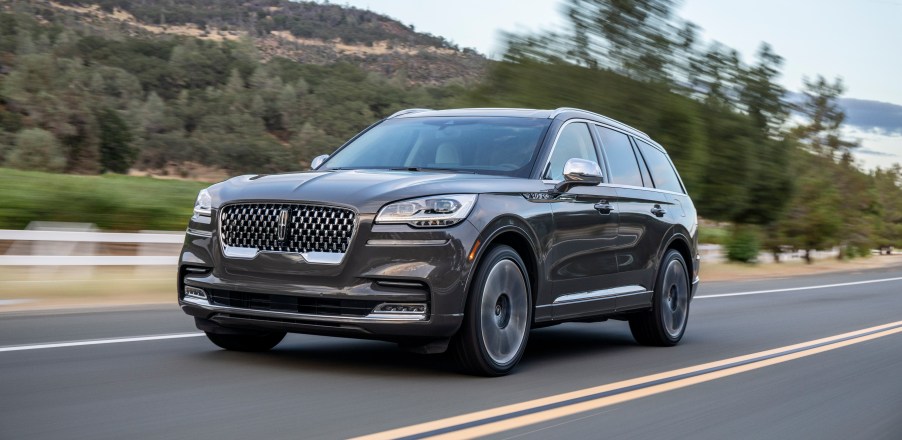
How Safe Is the Lincoln Aviator?
For some consumers, when considering a new Lincoln, performance, and comfort are primary factors in making their purchasing decisions. For others, finding the safest rides are more important. If you find yourself looking at the Lincoln Aviator, you have your eyes set on a safe and reliable vehicle.
But, do you know just how safe it actually is on the road? Today, we’ll dive into safety ratings, standard safety equipment, and optional driver assistance features to help you understand precisely how safe you and passengers will be.
What the IIHS says
Not all of the crash test ratings are in yet for the Lincoln Aviator. The National Highway Traffic Safety Administration will offer safety star ratings based on performance in a variety of crashes. Until they release their testing results, we can tell you about a few recalls and concerns featured on their site.
Complaints about 2020 Lincoln Aviator
- Electrical System
- Seats
- Visibility, wiper-related
Recalls affected by components
- Fuel lines may experience leaks caused by chafing
- Potential fuel leaks, when ignition sources are present, can increase the risk of fire hazards
- Seatback strength reduced potentially due to an improperly assembled recliner, increase injury risk during a crash
- The MPR lever may move unintentionally, without factory warnings to indicate, allowing the vehicle to roll without notification
Standard safety equipment
There is a robust menu of standard equipment for Lincoln Aviator’s safety. Automatic emergency braking, forward collision warnings, and lane-keep assistance are just a few. You’ll also have blind-spot warning alerts as well as rear cross-traffic alert systems. You’ll also enjoy a rearview camera with built-in washing regardless of your selected trim level.
Airbags and basic safety
As with most vehicles hitting the dealerships next year, there is a family of essential safety features as well as airbags you can expect standard for Lincoln Aviator safety. ABS brakes and stability control features are included on every trim level. You’ll also have front and side-impact airbags for protection during a collision. There are also overhead airbags for head protection in a rollover situation, as well as knee airbags for lower body protection.
Built-in security system standards
With the Lincoln Aviator, you will enjoy a few security system enhancements. It comes equipped with the ability to detect or anticipate unwanted vehicle break-ins. Ignition is also disabled should the original manufacturer key not be present in the vehicle.
Optional and available driver assistance
If you’re interested in adding more driver assistance tech and safety features, Lincoln Aviator makes it possible with plenty of options. One of the favorite and most notable extras is the Co-Pilot 360 Plus Package. Tack this on to your Aviator and enjoy add-ons like self-parking, adaptive cruise, and reverse auto-braking. If you opt for the Reserve I package, you’ll also have lane centering, evasive steering assist, and reverse braking assist features.
So, how safe are you in the Aviator?
Overall, there is no shortage of safety assets in the Aviator. This luxury midsize SUV is everything you’ll expect Lincoln to be. However, based on the few recalls already in place, we might suggest waiting to get official reviews of the Aviator in crash tests. While we don’t anticipate there being significant issues in those results, some buyers who prioritize safety may want to gather all the recommendations and ratings before making a purchasing decision.
Lincoln always shows up when it’s time to bring a luxury and performance-based SUV to the stage. The Aviator does all of the above and more. While some reviews offer a few cons to this ride, there are plenty of pros about which you can get excited. And, for those of you more focused on safety, you can rest assured all the necessary and cool extra safety bests come with it even if the crash test ratings aren’t quite in yet.


